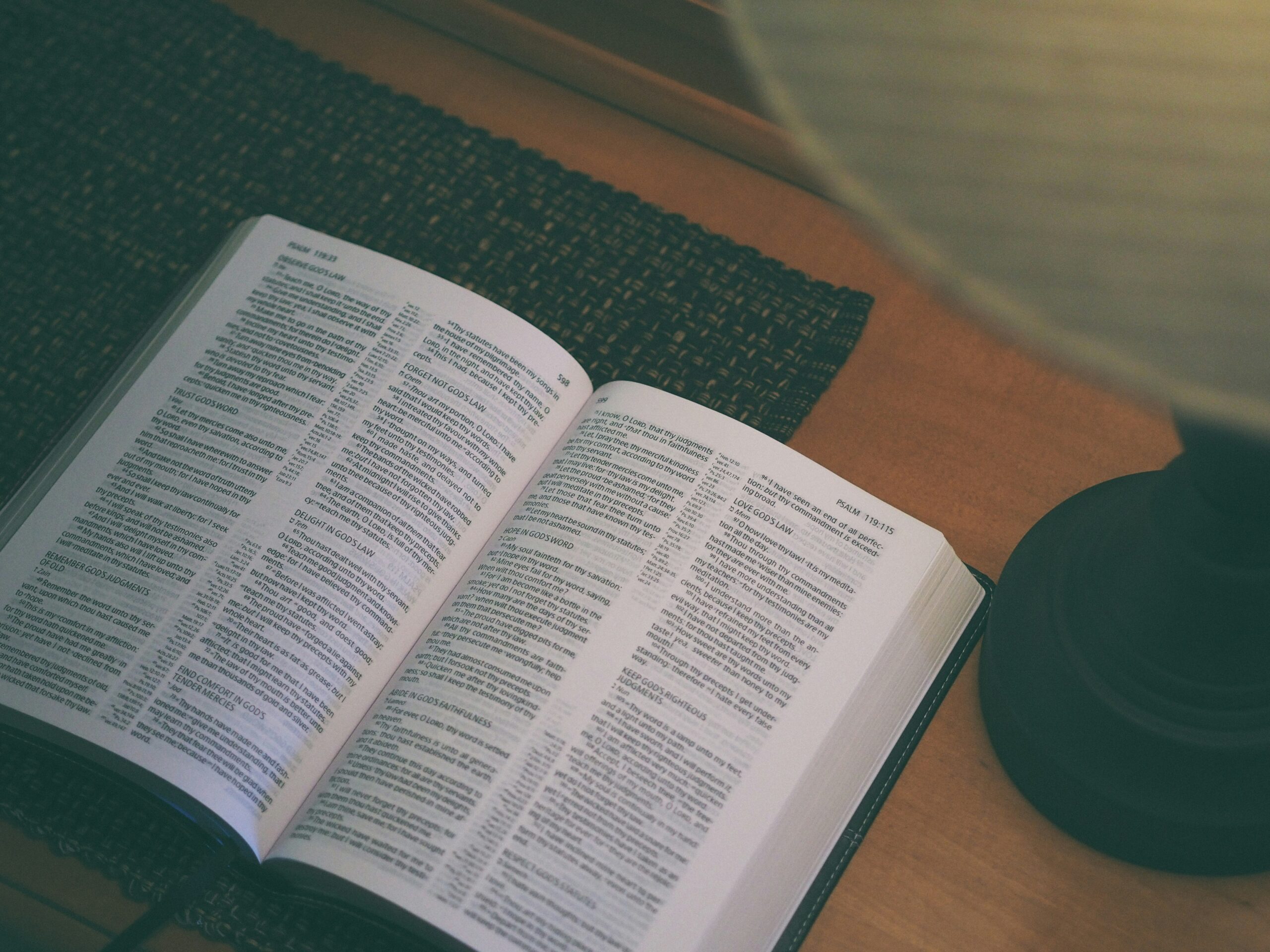
You’re not alone.
Let me say first of all: If we are going to be successful in attempting to read the Bible, we must discipline ourselves. Lots of people have had good intentions for reading the Bible but have ultimately given up on it. We need God’s grace if we are to make any progress in Bible reading, and we certainly need it if we are going to benefit from our reading. Reading the Bible isn’t a goal in itself; the goal is communion with God. If reading the Bible doesn’t bring you into communion with God, then it’s a failure. The goal is communion, not completing a checklist of passages read. It takes God’s grace to truly read the Bible profitably. But the Bible itself is a channel of grace! It’s a blessed circular system. You need grace for reading the Word, but grace comes through the Word. So get into the Word!
Grace is primary, but there are some very practical things you can do to help yourself read the Bible regularly and profitably:
Commit to a Time
The first and most important thing to do is to set a time. There are so many things that we have to do and so many things that we like to do that, unless we plan carefully, we’ll never have any time left for reading our Bibles. So we need to plan. If reading the Bible is at the bottom of our priority lists, if we plan to do that after we’ve done everything else, we won’t do it at all. Think about your day and pick a time for reading your Bible. Read your Bible at that time and don’t let anything else crowd into it.
Find a Place
The second thing to do is to think of the best place to read your Bible, a place with no distractions. Don’t try to read your Bible while sitting next to your son who’s playing a video game. It won’t work; you’ll be hopelessly distracted.
Develop a Plan
Third, set a plan. A reading plan helps you know what you’ve read and what you haven’t. If you just randomly flip open your Bible every day, there will be many portions of Scripture that you will never read. If you have no plan and you’re wondering what to read one day, how likely are you to flip to Lamentations or 3 John? Not very. But if you don’t read all the parts of the Bible, you will never develop a sense for its grand, over-arching story. There are lots of Bible-reading plans you can use, but a good one to start out with is a plan that takes you through the entire Bible in a year. A through-the-Bible plan makes sure that you read every part of Scripture. Did you know that you can read through the entire Bible in one year by spending only fifteen minutes reading each day? There are 1,440 minutes in one day. If you use only fifteen of those minutes every day to read the Bible, which is about one percent of your time, you can read through the whole Word of God in one year. So plan your Bible reading. You’ll never have to wonder what to read next; you’ll always know what you’ve read and what you haven’t.
How to Read
But how should we read? One of the most helpful little books on reading the Scriptures was penned by the Puritan Richard Greenham (ca. 1535–1594) under the title A Profitable Treatise, Containing a Direction for the Reading and Understanding of the Holy Scriptures. He gives us eight helps for how to read the Bible, each of which can be summarized in one word. Here they are:
Diligence
Diligence must be pursued in reading the Scriptures more than in doing anything secular. We ought to read and study our Bibles with more diligence than men dig for hidden treasure, Greenham says. Diligence makes rough places plain; makes the difficult easy; makes the unsavory tasty.
Wisdom
Wisdom must be used in the choice of matter, order, and time. Though we must read all of the Bible, as we have seen, it is not wise to spend most of our reading time on the hardest parts of Scripture. In terms of order, Greenham agrees that we should have a system that helps us get through the whole Bible, since only a whole Bible will make a whole Christian. As for time, no day should pass without reading the Bible.
Preparation
Proper preparation is critical. Without it, Scripture reading is seldom blessed. Preparation involves three things. First, we must approach Scripture with reverence, determined like Mary to lay up God’s Word in our hearts (Luke 2:19). Second, we must approach Scripture with faith in Christ, looking to Him as the Messiah who can open our hearts just as He did for the disciples traveling to Emmaus (Luke 24:27). Third, we must approach Scripture with a sincere desire in our hearts to be taught by God (Prov. 17:16) and with a longing to study it in detail. Martin Luther said he studied the Bible in the same way he gathered apples: “First, I shake the whole tree that the ripest may fall. Then I shake each limb, and when I have shaken each limb I shake each branch and every twig. Then I look under every leaf.”1Blanchard, Complete Gathered Gold, 60.
Meditation
Read slowly, thoughtfully, and meditatively. Some portions of Scripture— the book of Proverbs, for example—need to be read extra slowly in order to allow time for meditating on each verse. It is better to read five verses from Proverbs with meditation and prayer than one hundred without them.
Meditating on what we read in the Bible is critical. You can read diligently, but the reading will bear no fruit if you don’t stop to think about and study what you have read. Reading may give you some breadth of knowledge, but only meditation and study will give you depth. The difference between reading and meditation is like the difference between drifting and rowing toward a destination in a boat. If you only read, you will drift aimlessly; if you meditate and pray over what you read, you will have oars that will propel you to your destination.
Fellowship
Greenham actually calls this “conference,” but he means that you should fellowship with others about what you read in the Bible. You should especially talk with other believers about the truths of the Bible. That will help you grow in knowledge. Proverbs 27:17 says it this way: “Iron sharpeneth iron: so a man sharpeneth the countenance of his friend.”
Faith
Our Scripture reading must be mixed with faith. Faith is the key to getting real profit from reading the Bible (Heb. 4:2); without it, it is impossible to please God (Heb. 11:6). “To read without faith is to walk in darkness,” said Luther. It is to read in vain. By faith, as Horatius Bonar said, “we must not only lay the Bible up within us, but transfuse it through the whole texture of the soul.”2Blanchard, Complete Gathered Gold, 59.
Practice
The fruit of faith must be practice; the read Word must be done. Dr. Martyn Lloyd-Jones wrote: “It is a good thing to be a student of the Word, but only in order to be a practiser and experiencer of the Word.”3Blanchard, Complete Gathered Gold, 60.
We must read the Word with the goal of obeying it. We must prayerfully aim for believing obedience, willing obedience, submissive obedience, loving obedience, wholehearted obedience, prayerful obedience, dependent obedience, and childlike obedience. The more we put the Word into practice in the daily obedience of faith, the more God will increase our gifts for His service and for additional practice. When the Spirit sheds light upon our conscience that we are “doing” the read Word, we also receive the great benefit of being assured that we possess faith.
This means that we must examine ourselves by what we read. For example, if you read Proverbs 3:5, “Trust in the LORD with all thine heart; and lean not unto thine own understanding,” pause to ask yourself: Am I, by grace, trusting in the Lord? What areas of my life am I not surrendering to Him? In what areas am I not putting this text into practice, but, instead, leaning to my own understanding? Then repent of these things, and turn to God in prayer for forgiveness and for strength to change.
Prayer
Prayer is essential throughout our reading of Scripture, for we are dependent on the Holy Spirit to enlighten us, to give us understanding, and to apply the Word to our souls and lives. Pray before you read the Bible, while you read it, and after you read it. In public reading of Scripture, it is not possible to pause and pray after each verse. In private reading, feel free to salt Scripture constantly with short, pungent, applicable petitions suggested by the particular verses being considered.
If we pray for nourishment from our physical food at every meal, shouldn’t we pray much more for spiritual nourishment from every Bible reading? If we do not dare touch our food and drink before we pray, how do we dare touch God’s holy Book—our spiritual food and drink—without prayer?
If the Bible is to get into us, we must get into it. Charles Spurgeon said, “Backsliders begin with dusty Bibles and end with filthy garments.”4Blanchard, Complete Gathered Gold, 62. Read and study the Bible to be wise; believe it to be safe; practice it to be holy. Lay hold of it until it lays hold of you.
Excerpt from
Puritan Reformed Journal – JANUARY 2016
Volume 8 • Number 1
By Joel Beeke








